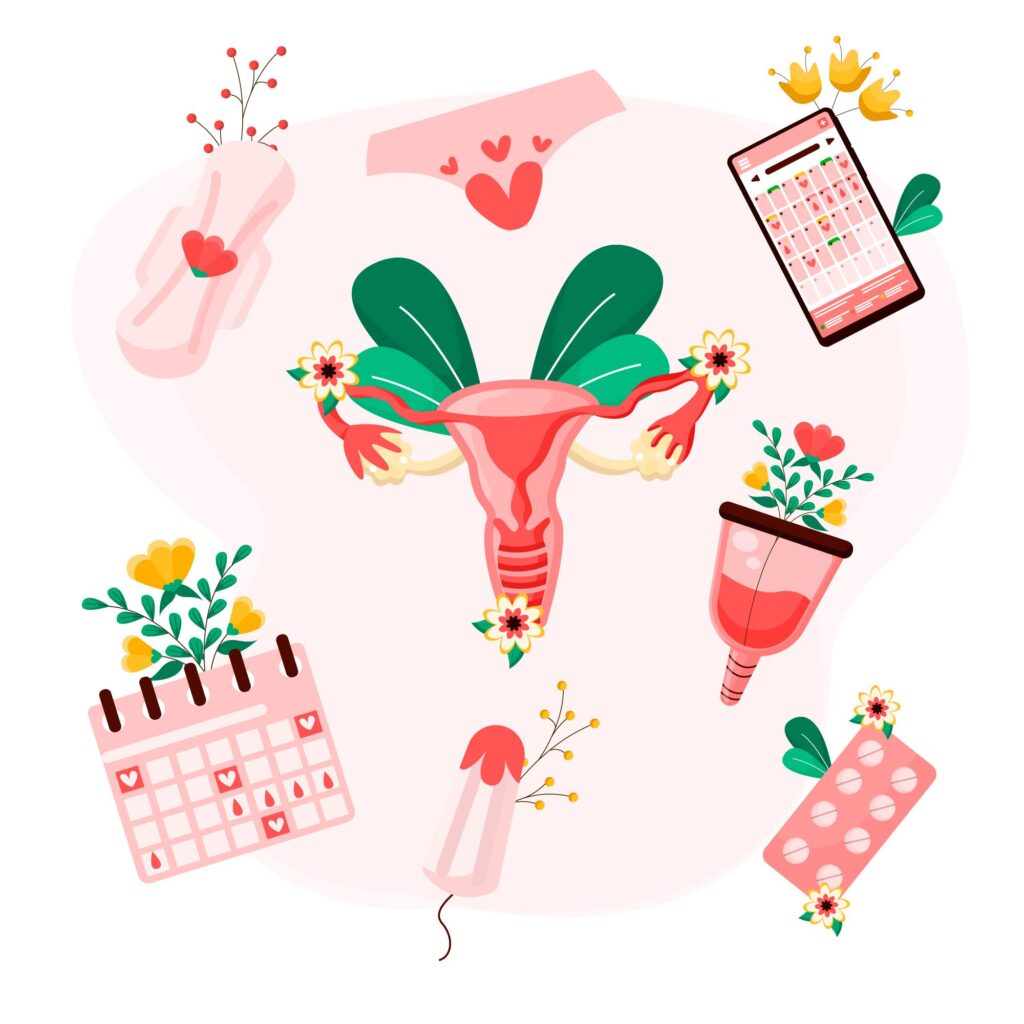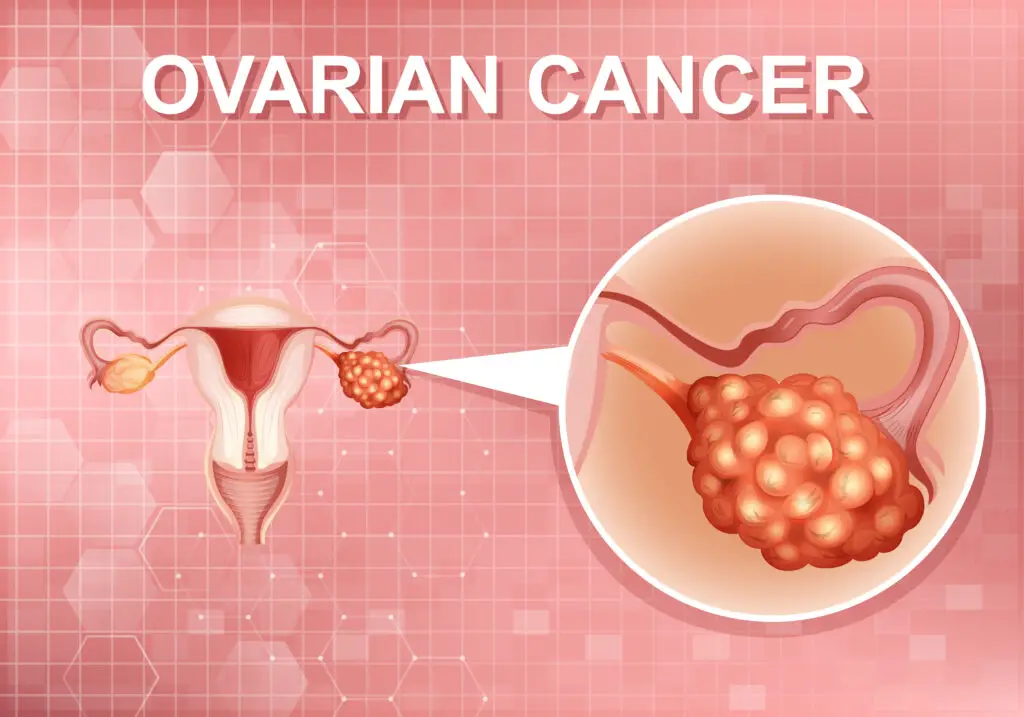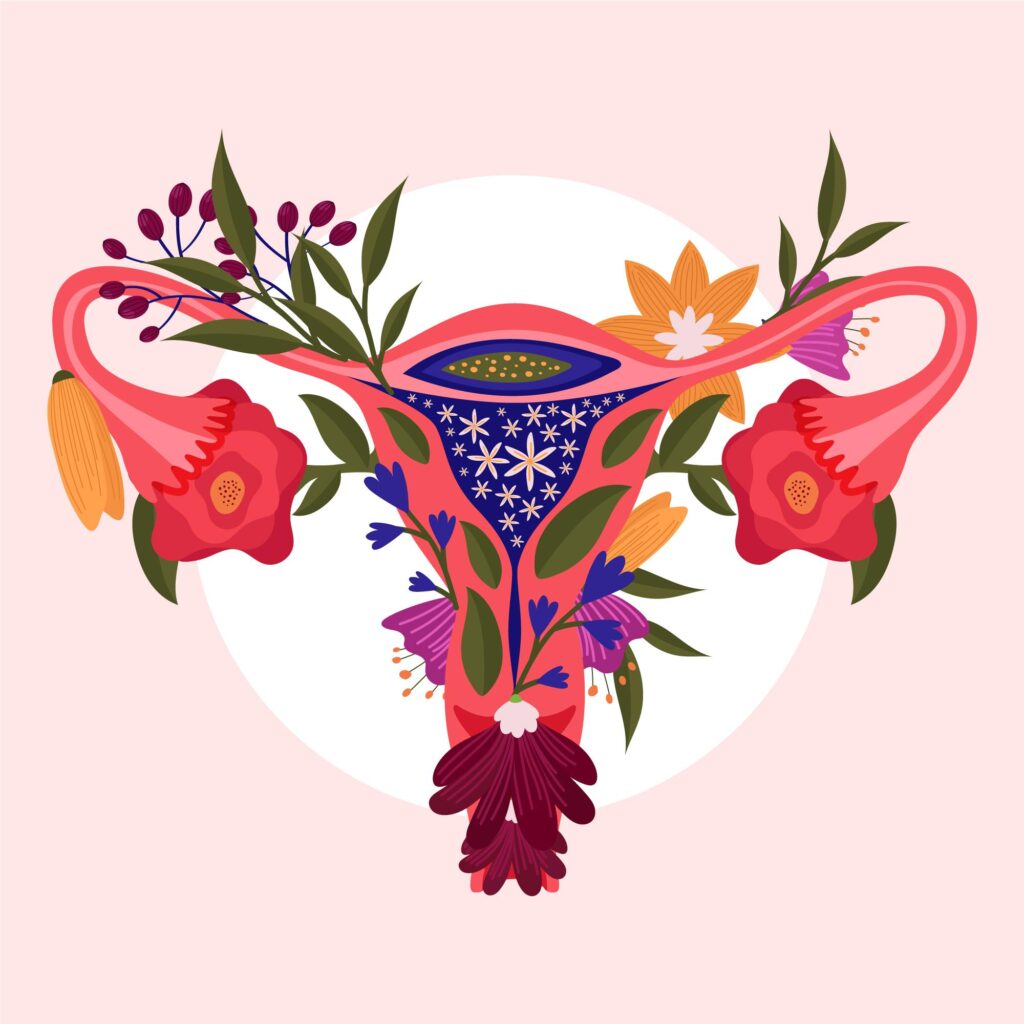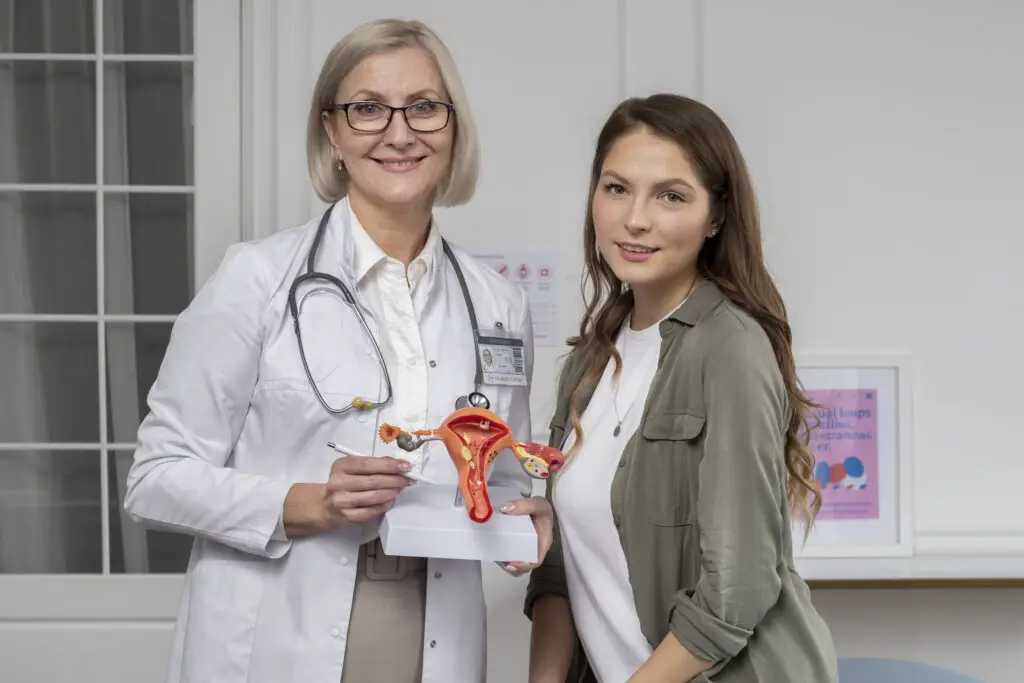Introduction
Ovarian health is a vital aspect of a woman’s overall well-being. It involves various factors, including genetics, lifestyle choices, and medical conditions. In this comprehensive article, we’ll delve deep into the realm of ovarian health. From understanding the anatomy of ovaries to discussing common disorders and tips for maintaining optimal ovarian health, we’ve got it all covered.
Table of Contents
Anatomy of Ovaries
Ovarian Structure
Let’s start by exploring the basic structure of the ovaries. Ovaries are paired reproductive organs, each about the size and shape of an almond. They are a crucial part of the female reproductive system.
The ovaries are positioned within the pelvic region, with one on either side of the uterus. They are held in place by ligaments and are responsible for various essential functions in a woman’s body.
Ovarian Function
Understanding the primary functions of the ovaries is fundamental to appreciating their role in a woman’s health.
The ovaries have two main functions: they produce eggs (ova) for reproduction and they produce hormones, including estrogen and progesterone, which play a critical role in regulating the menstrual cycle and supporting pregnancy.
Ovulation Process
A detailed look into the monthly ovulation cycle is essential for understanding ovarian health.
Ovulation is when a fully developed egg is released from one of the ovaries. Usually, this takes place roughly in the middle of the menstrual cycle. If the released egg is fertilized by sperm, it may lead to pregnancy. If not, the egg is reabsorbed into the body, and the menstrual cycle continues.

Factors Affecting Ovarian Health
Genetic Influences
How genetics play a role in determining ovarian health is a complex yet crucial aspect. Some women may be genetically predisposed to certain ovarian conditions, while others may inherit protective factors.
Genetic factors can influence the risk of ovarian disorders, such as polycystic ovary syndrome (PCOS) and ovarian cancer. Understanding your family history and genetic predispositions can help in proactive management.
Age and Ovarian Health
Discussing the impact of age on ovarian function is essential. Ovarian health is significantly affected by age, particularly in the context of fertility.
As women get older, the quantity and quality of eggs in the ovaries diminish. This not only affects the ability to conceive but also influences hormonal changes that can impact overall well-being.
Hormonal Balance
The significance of hormonal balance for ovarian health cannot be overstated. Hormones are chemical messengers that regulate various bodily functions, including those of the ovaries.
Imbalances in hormones like estrogen and progesterone can lead to irregular menstrual cycles, ovarian cysts, and other complications. Maintaining a healthy hormonal balance is crucial for overall ovarian health.
Lifestyle Choices
Exploring how lifestyle choices, including diet and exercise, affect the ovaries is a critical aspect of ovarian health.
Diet and exercise play a significant role in maintaining a healthy body weight, which, in turn, can support ovarian health. A balanced diet rich in nutrients and regular physical activity can positively impact the ovaries and reproductive health.
Common Ovarian Disorders
Polycystic Ovary Syndrome (PCOS)
An in-depth analysis of PCOS, its causes, and management is necessary. PCOS is a frequently encountered hormonal disorder in women of childbearing age.
PCOS is distinguished by enlarged ovaries that have small cysts on their outer edges. It can lead to irregular menstrual cycles, infertility, and various metabolic problems. Management often involves lifestyle changes, medications, and sometimes surgical intervention.
Ovarian Cysts
Understanding different types of ovarian cysts and their implications is crucial. Ovarian cysts are like fluid-filled sacs that can form either within the ovaries or on their surface.
There are various types of ovarian cysts, including functional cysts, dermoid cysts, and cystadenomas. While most cysts are benign, some may cause discomfort or lead to complications that require medical attention.
Endometriosis
The link between endometriosis and ovarian health is worth exploring. Endometriosis is a painful condition in which tissue similar to the uterine lining grows outside the uterus.
Endometrial tissue can implant on the ovaries and form cysts called endometriomas. This condition can lead to chronic pain and infertility. Effective management may involve medication or surgery.
Ovarian Cancer
A comprehensive overview of ovarian cancer, including risk factors and prevention, is critical. Ovarian cancer is a severe and often fatal disease that affects the ovaries.
Risk factors for ovarian cancer include age, family history, and certain genetic mutations. Prevention and early detection are vital for improving survival rates.

Diagnosing Ovarian Conditions
Medical Tests
Discussing various medical tests used to diagnose ovarian disorders is crucial for timely intervention. Medical professionals use a range of tests to assess ovarian health and detect any abnormalities.
Common tests include pelvic exams, ultrasound, blood tests for hormone levels, and imaging studies like CT scans or MRI.
Imaging Techniques
The role of imaging techniques in identifying ovarian issues is significant. Imaging, such as transvaginal ultrasound, can provide detailed images of the ovaries and help identify cysts or tumors.
MRI and CT scans offer a more comprehensive view of the pelvis, aiding in the diagnosis of ovarian conditions.
Maintaining Ovarian Health
Diet and Nutrition
Tips for a balanced diet to support ovarian health are essential. A diet rich in fruits, vegetables, lean proteins, and whole grains provides essential nutrients that support overall health, including ovarian health.
Specific nutrients, such as antioxidants and omega-3 fatty acids, can be beneficial for the ovaries. Maintaining a healthy weight through diet and exercise is also crucial.
Exercise Regimen
The importance of regular exercise in maintaining healthy ovaries cannot be overstated. Regular physical activity is associated with numerous health benefits, including improved ovarian health.
Exercise helps regulate hormones, reduce the risk of ovarian disorders, and support overall well-being.
Stress Management
How stress can affect ovarian health and stress-reduction strategies are significant considerations. High levels of stress can impact hormonal balance, potentially leading to irregular menstrual cycles and other ovarian issues.
Stress management techniques, such as yoga and meditation, can be effective in promoting ovarian health.
Hormone Regulation
Natural ways to balance hormones for improved ovarian health are a valuable aspect of maintaining well-being. Lifestyle changes, including stress reduction and a balanced diet, can help regulate hormone levels.
In some cases, hormonal therapies may be prescribed to address specific imbalances.

Alternative Therapies
Acupuncture
Exploring the potential benefits of acupuncture for ovarian health is an intriguing aspect. Acupuncture is an ancient Chinese practice that involves inserting thin needles into specific points on the body.
Some women use acupuncture to support reproductive health and manage conditions like PCOS.
Herbal Remedies
An overview of herbal remedies that may support ovarian health is worth considering. Certain herbs, such as chasteberry and black cohosh, have been traditionally used to address hormonal imbalances and menstrual irregularities.
Nevertheless, it’s crucial to seek guidance from a healthcare provider before incorporating herbal remedies into your healthcare routine.
Yoga and Meditation
The role of relaxation techniques in promoting overall well-being is significant. Yoga and meditation are practices that not only reduce stress but also promote physical and mental balance.
These techniques can positively influence ovarian health by supporting hormonal balance and reducing the impact of stress.
Pregnancy and Fertility
Ovarian Health and Fertility
The connection between ovarian health and a woman’s fertility is a fundamental aspect of women’s health.
Healthy ovaries are essential for successful conception and a healthy pregnancy. Maintaining ovarian health is particularly important for women planning to start a family.
Preconception Planning
Preparing your ovaries for a healthy pregnancy is a critical consideration for prospective parents. Preconception planning involves optimizing your health and addressing any potential issues that could affect pregnancy.
This may include consulting with a healthcare provider and making necessary lifestyle adjustments.
Infertility Treatments
A look at infertility treatments and their impact on ovarian health is essential for couples facing fertility challenges.
Various treatments, such as in vitro fertilization (IVF) and ovulation-stimulating medications, can influence ovarian function. Understanding these treatments is crucial for informed decision-making.

Ovarian Health Throughout Life
Ovarian Health in Adolescence
Specific considerations for adolescent girls regarding ovarian health are important. During puberty, the ovaries undergo significant changes as the menstrual cycle begins.
It’s essential to educate young girls about menstrual health and the basics of ovarian function.
Ovarian Health during Pregnancy
How pregnancy affects ovarian health is an intriguing aspect. During pregnancy, the ovaries temporarily cease ovulation.
Understanding these changes and ensuring a healthy pregnancy is crucial for expectant mothers.
Ovarian Health in Menopause
Understanding ovarian health during menopause is critical. Menopause is a natural phase in a woman’s life, signaling the end of her reproductive years.
Ovarian function declines, leading to hormonal changes and the cessation of menstruation. Managing menopausal symptoms and staying healthy during this transition is vital.
Holistic Approaches
Holistic Medicine
Exploring holistic approaches to ovarian health is an important consideration for those seeking alternative or complementary therapies.
Holistic medicine takes into account the physical, emotional, and spiritual aspects of health. It may involve practices like acupuncture, herbal medicine, and dietary adjustments.
Mind-Body Connection
The connection between mental health and ovarian well-being is a fascinating subject. Stress and emotional well-being can impact hormonal balance and ovarian health.
Mind-body practices like mindfulness meditation and cognitive-behavioral therapy can support both mental health and ovarian health.
Ovarian Health Myths
Common Misconceptions
Debunking myths and misconceptions about ovarian health is crucial. Many false beliefs surround ovarian health, leading to confusion and anxiety.
Addressing common misconceptions can empower women to make informed decisions about their health.
Fact vs. Fiction
Separating facts from fiction regarding ovarian health is essential. By relying on evidence-based information, women can take proactive steps to protect and enhance their ovarian health.

Seeking Professional Help
When to Consult a Doctor
Indications that it’s time to seek medical advice are vital. Ignoring symptoms of ovarian disorders can lead to complications.
Consult a healthcare provider if you experience persistent pelvic pain, irregular menstrual cycles, or other concerning symptoms.
Ovarian Health Specialists
Information on specialists who deal with ovarian issues is valuable. Gynecologists and reproductive endocrinologists are healthcare providers with expertise in women’s reproductive health.
They can offer guidance, diagnostic assessments, and treatment options for various ovarian conditions.
Conclusion
In conclusion, ovarian health is a multifaceted subject that deserves our attention. By understanding the anatomy of ovaries, the factors influencing ovarian health, common disorders, diagnostic methods, and tips for maintaining optimal ovarian well-being, you can take control of your health and make informed decisions. Keep in mind that having knowledge is the cornerstone of a healthier life.

Frequently Asked Questions (FAQs):
Q 1: What is the primary role of the ovaries in the female reproductive system?
Answer: The ovaries serve two main functions: they produce eggs for reproduction and release hormones like estrogen and progesterone that regulate the menstrual cycle and support pregnancy.
Q 2: Can genetics influence ovarian health?
Answer: Yes, genetics can play a role in determining ovarian health. Some women may have a genetic predisposition to certain ovarian conditions, and family history can be a crucial factor to consider.
Q 3: How does age impact ovarian health?
Answer: As women age, the number and quality of eggs in the ovaries decrease, affecting fertility and hormonal balance. It’s essential to be aware of these changes as women get older.
Q 4: What lifestyle choices can affect ovarian health?
Answer: Diet, exercise, and managing stress are lifestyle factors that can significantly impact ovarian health. A balanced diet and regular physical activity are essential, while stress can influence hormonal balance.
Q 5: What is Polycystic Ovary Syndrome (PCOS), and how is it managed?
Answer: PCOS is a common hormonal disorder that can lead to irregular menstrual cycles and other complications. Management typically involves lifestyle changes, medications, and sometimes surgery.
Q 6: Are all ovarian cysts a cause for concern?
Answer: No, not all ovarian cysts are harmful. Some are benign and resolve on their own, while others may require medical attention. It’s essential to distinguish between different types of cysts.
Q 7: Is there a connection between endometriosis and ovarian health?
Answer: Endometriosis, a condition where uterine tissue grows outside the uterus, can affect ovarian health. It may lead to the development of endometriomas (cysts) on the ovaries.
Q 8: What are the risk factors for ovarian cancer?
Answer: Risk factors for ovarian cancer include age, family history, and certain genetic mutations. Early detection and prevention are crucial in managing this disease.
Q 9: How are ovarian conditions diagnosed?
Answer: Medical tests and imaging techniques, including pelvic exams, ultrasounds, and blood tests, are used to diagnose ovarian disorders.
Q 10: How can a balanced diet support ovarian health?
Answer: A diet rich in fruits, vegetables, lean proteins, and whole grains provides essential nutrients that support overall health, including the ovaries.
Q 11: What is the significance of exercise in maintaining healthy ovaries?
Answer: Regular physical activity helps regulate hormones, reduce the risk of ovarian disorders, and support overall well-being.
Q 12: How can stress affect ovarian health, and what are stress management strategies?
Answer: High stress levels can impact hormonal balance and lead to irregular menstrual cycles. Stress reduction techniques, such as yoga and meditation, can help alleviate this impact.
Q 13: Are there natural ways to regulate hormones for improved ovarian health?
Answer: Yes, lifestyle changes, including stress reduction and a balanced diet, can help regulate hormones naturally. In some cases, healthcare providers may prescribe hormonal therapies.
Q 14: Can alternative therapies like acupuncture and herbal remedies support ovarian health?
Answer: Some women use alternative therapies like acupuncture and herbal remedies to support reproductive health, but it’s essential to consult with a healthcare provider before using them.
Q 15: How does ovarian health change during different life stages, such as adolescence, pregnancy, and menopause?
Answer: Ovarian health undergoes significant changes during these life stages. Understanding these changes is vital for overall well-being.
These FAQs and answers provide additional information and address common questions readers may have after reading the article on ovarian health.
